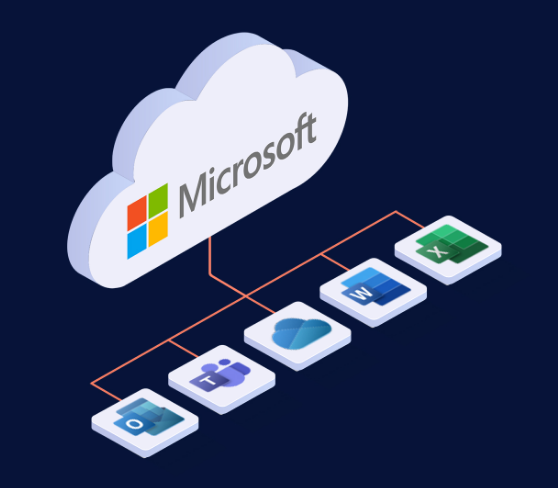Why Multifactor Authentication (MFA) is so Important to your Business.
 Cloud Matrix IT
·
2 minute read
Cloud Matrix IT
·
2 minute read
In today's digital landscape, where cyber threats are growing increasingly sophisticated, organizations must prioritize security measures to protect sensitive data and user credentials. One highly effective defense mechanism that is crucial for businesses is multifactor authentication (MFA).
In this blog post, we will explore the importance of MFA and why organizations, particularly small and medium-sized businesses (SMBs), should deploy it. We will also delve into how relatively easy it is to implement MFA while highlighting the devastating consequences that can occur if credentials are compromised.
Understanding Multifactor Authentication (MFA)
Multifactor authentication involves the use of multiple authentication factors to verify the identity of users. Traditional authentication typically relies on a single factor, such as a password, leaving it vulnerable to various attacks. MFA strengthens security by combining multiple factors, such as something the user knows (e.g., a password), something the user possesses (e.g., a smartphone or token), or something the user is (e.g., biometrics like fingerprints or facial recognition).

MFA takes a username and password to the next level. While your credentials
can be stolen, it's very unlikely others will have your cell phone.
Which makes using an authenticator app or text messaging much more secure.
Importance of MFA Deployment
-
Enhanced Security: The primary reason organizations should deploy MFA is its ability to significantly bolster security. By requiring multiple factors to authenticate users, MFA mitigates the risk of unauthorized access even if passwords are compromised. According to the 2021 Verizon Data Breach Investigations Report, compromised credentials were involved in 61% of data breaches, highlighting the critical role MFA can play in preventing unauthorized access.
-
Relatively Easy Implementation: Contrary to popular belief, implementing MFA does not have to be an arduous or complex process. Many service providers and platforms offer straightforward MFA solutions that can be integrated seamlessly into existing systems. Additionally, cloud-based authentication services, such as Google Authenticator or Microsoft Authenticator, make it even easier for SMBs to adopt MFA without significant investments in infrastructure.
-
Cost-Effective Solution: SMBs often worry about the financial burden associated with implementing advanced security measures. However, MFA can be an affordable solution (sometimes $0), especially when compared to the potential costs of a security breach(which can be 100's of thousands to millions depending on the size of the organization). The aftermath of a breach can result in financial losses, reputational damage, and potential legal ramifications. Deploying MFA is the first and cost-effective preventive measure to safeguard against such risks. MFA is NOT the only measure you should have in place, it's just the start of properly securing and configuring your environment.
Statistics on MFA Usage in SMBs and Its Effectiveness
-
MFA Adoption Among SMBs: According to a survey conducted by Keeper Security, only 45% of SMBs in 2021 had implemented MFA. This means that a significant portion of SMBs is still vulnerable to credential-based attacks. There are more than 30 million SMBs in the United States.
-
Impact of MFA on Breach Prevention: The effectiveness of MFA in preventing breaches cannot be overstated. According to Microsoft's Security Blog, enabling MFA can block 99.9% of account compromise attacks. The implementation of MFA as a preventive measure significantly reduces the likelihood of unauthorized access, protecting valuable assets and sensitive information.
MFA stands as a critical security measure for organizations of all sizes, particularly SMBs. Primarily because SMB's do not have the resources or staff to properly implement the needed security posture that is required to protect them. By requiring multiple factors for authentication, MFA provides enhanced protection against credential-based attacks, even if passwords are compromised. Organizations can easily implement MFA using readily available solutions, ensuring a cost-effective defense against potential security breaches. If you're using Microsoft 365, which Cloud Matrix IT primarily develops in, implementing MFA is relatively straightforward. The statistics clearly demonstrate the effectiveness of MFA in preventing unauthorized access and the devastating consequences that can arise if credentials are compromised. Prioritizing MFA deployment is a proactive step that organizations should take to safeguard their data, protect their reputation, and mitigate potential financial losses.
References:
- Verizon. (2021). 2021 Data Breach Investigations Report. Retrieved from https://enterprise.verizon.com/resources/reports/dbir/
- Keeper Security. (2021).
Give us a call or set up a chat to discuss how you can implement MFA within your organization.



